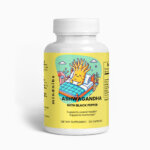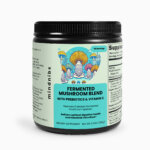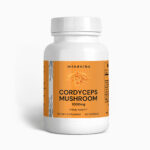
“Migraines and Headaches: Can Supplements Provide Relief?”
Migraines and headaches can feel unbearable, making it nearly impossible to go about our daily lives. Millions of people struggle with migraines and headaches, and often rely on over-the-counter painkillers for relief. However, these painkillers can have negative side effects and may not work for everyone. That’s why many people are turning to supplements for relief. But can supplements really provide relief for migraines and headaches? In this article, we’ll take a closer look at the most popular supplements used to treat these debilitating conditions and their effectiveness. So if you’re looking for an alternative to mainstream painkillers, keep reading to find out more.
1. The Burden of Migraines and Headaches: Understanding the Need for Relief
Headaches and migraines are more than just a nuisance; they can be debilitating, affecting an individual’s ability to work, sleep, and participate in daily activities. According to the World Health Organization, migraines are the sixth most disabling illness worldwide. It’s not just the physical pain that can be distressing; the emotional and financial burden can take a toll on individuals and their families. Providing relief for chronic headaches is, therefore, essential.
Those battling migraines and chronic headaches often grapple to find effective treatment options. While over-the-counter pain relievers can provide temporary relief, they’re not always sufficient in managing the symptoms. This has led many individuals to explore alternative treatments, including acupuncture, massage therapy, and even cannabis. A combination of medication, lifestyle changes, and complementary therapies can provide effective long-term relief.
It’s crucial to note that migraines and headaches are not just a “mind-over-matter” situation. The causes of migraines and headaches are complex and vary from person to person. For some individuals, certain foods, hormonal changes, or environmental factors can trigger a headache. For others, tension headaches or migraines may be genetic. Every individual is different in how they experience migraines, and a personalized approach to treatment that considers all factors is necessary to ensure the most effective relief.
2. Exploring the Role of Supplements in Migraine and Headache Management
If you suffer from frequent migraines or headaches, you may be interested in exploring the role that supplements can play in managing your symptoms. While medication is often the go-to treatment for these conditions, supplements can provide a natural alternative or complement to traditional medicine.
One supplement that has shown promise in reducing migraine frequency and severity is magnesium. As a natural muscle relaxant, magnesium can help ease tension in the body and prevent the constriction of blood vessels that can lead to headaches. Additionally, riboflavin (vitamin B2) has been found to reduce the frequency of migraines in some individuals. When taken regularly, it can reduce the number of migraine attacks by up to 50 percent.
Another supplement that may be beneficial for migraine sufferers is butterbur. This herb has been shown to be effective in reducing the frequency and severity of migraines, with some studies indicating it may be just as effective as certain prescription medications. However, it’s important to note that butterbur supplements should only be taken if they have been specially processed to remove a potentially harmful compound found in the raw plant.
In conclusion, supplements can be a useful tool for managing migraines and headaches naturally. While they may not work for everyone, it’s worth exploring the numerous options available to see if they can help improve your quality of life. As always, it’s important to speak with your healthcare provider before incorporating any new supplement into your routine.
3. Magnesium: A Promising Supplement for Migraine Prevention and Treatment
Magnesium has been gaining popularity as a potential supplement for migraine prevention and treatment. This essential nutrient plays a vital role in the functioning of the nervous system and is involved in various biochemical reactions, making it an attractive option for those seeking natural relief from migraines.
Studies have shown that magnesium deficiency is common among individuals who suffer from migraines, and supplementing with magnesium may help reduce the frequency and severity of migraines. Magnesium has been observed to have a calming effect on the nervous system and can help regulate blood vessel constriction, a major contributor to migraine pain.
While magnesium can be obtained through diet, many individuals may not be consuming enough in their daily intake. Supplements are a convenient and effective way to increase magnesium levels. With minimal side effects and numerous potential benefits, magnesium offers a promising option for migraine prevention and treatment. Consider adding magnesium supplements to your daily routine to help alleviate the pain and discomfort associated with migraines.
4. Butterbur: The Natural Alternative to Over-the-Counter Painkillers
Butterbur is a natural herb that grows in North America, Europe, and Asia. It has been used for centuries to treat various ailments, including headaches, allergies, and fever. Recent studies have shown that butterbur is an effective alternative to over-the-counter painkillers for treating migraines and other types of pain.
One of the active compounds in butterbur is called petasin, which has been shown to have anti-inflammatory effects similar to non-steroidal anti-inflammatory drugs (NSAIDs) like ibuprofen. However, unlike NSAIDs, butterbur does not cause stomach ulcers or other digestive issues. This makes it a safer option for people who suffer from chronic pain and need to take painkillers regularly.
Another benefit of butterbur is that it does not have the same side effects as prescription drugs and over-the-counter painkillers. For example, it does not cause drowsiness or impair cognitive function, which is important for people who need to remain alert at work or while driving. In fact, some studies have shown that butterbur may actually improve cognitive function and memory.
In summary, butterbur is a natural alternative to over-the-counter painkillers that offers similar benefits without the harmful side effects. If you suffer from chronic pain, migraines, or other types of pain, consider talking to your healthcare provider about whether butterbur is a safe and effective treatment option for you. Remember to always consult with your healthcare provider before starting any new supplement or medication.
5. Coenzyme Q10: A Potential Remedy for Migraine Sufferers
Coenzyme Q10, also known as CoQ10, is a vitamin-like substance that is essential for energy production in the body’s cells. Recent studies have shown that CoQ10 may also be a potential remedy for migraine sufferers. Here’s what you need to know:
– CoQ10 is a natural substance that is found in every cell in our bodies. It plays a key role in producing energy and protecting cells from damage.
– Studies have shown that CoQ10 supplements may be beneficial for people who suffer from migraines. In a study published in the journal Neurology, researchers found that people who took CoQ10 had significantly fewer migraines compared to those who took a placebo.
– The exact mechanism behind how CoQ10 works to reduce migraines is not fully understood, but it is believed to be due to its ability to reduce inflammation and oxidative stress in the body. Additionally, CoQ10 may improve mitochondrial function, which can also help reduce migraines.
If you suffer from migraines, it may be worth considering adding CoQ10 supplements to your regimen. While more research is needed to fully understand its effects, the existing studies are promising and suggest that CoQ10 may be a safe and effective remedy for chronic migraine sufferers. As always, be sure to talk to your doctor before starting any new supplements or medications.
6. Riboflavin: An Underestimated Addition to Migraine Prevention
Riboflavin, also known as vitamin B₂, is an essential nutrient that plays an important role in metabolism and maintaining healthy skin and eyes. However, recent studies have suggested that riboflavin may also be an effective addition to migraine prevention. Despite this, riboflavin is often overlooked as a potential treatment for migraine sufferers.
One study found that participants who took riboflavin experienced an average of 2.5 fewer headache days per month compared to those who took a placebo. Additionally, riboflavin has been shown to increase the effectiveness of other migraine medications, such as prophylactic drugs and triptans. It is believed that riboflavin helps to regulate mitochondrial function, which may be a contributing factor to migraine attacks.
So, why isn’t riboflavin being recommended more frequently for migraine prevention? One reason may be the lack of awareness among healthcare professionals and migraine sufferers themselves. It is important for individuals to speak with their doctor or a healthcare professional to determine if riboflavin may be a suitable addition to their migraine treatment plan. With the potential benefits and minimal side effects, riboflavin should not be underestimated in the fight against migraines.
7. Taking Control of Migraines and Headaches: Considering the Benefits of Lifestyle and Nutritional Supplements
Migraines and headaches can have a significant impact on one’s quality of life. They can be debilitating, affecting the ability to work, attend social events, and complete daily tasks. If you experience migraines or headaches, you may want to consider lifestyle changes and nutritional supplements to take control of your symptoms.
Lifestyle changes can have a massive impact on reducing the occurrences and intensity of migraines and headaches. Maintaining a healthy sleep schedule, avoiding triggering foods, and staying hydrated are excellent starting points. Additionally, incorporating stress-reducing activities such as yoga, meditation, or mindfulness can significantly reduce the frequency and intensity of symptoms.
Certain nutritional supplements can also have significant benefits in controlling migraines and headaches. Magnesium, for example, has been shown to alleviate symptoms in some people. ginger, vitamin B2, and Coenzyme Q10 are other supplements that may help those suffering from migraines and headaches. It is crucial to speak with a healthcare professional to ensure the right dosage and to avoid any interactions with other medications.
Taking control of your migraines and headaches requires a multi-faceted approach. By incorporating lifestyle changes and nutritional supplements into your daily routine, you can help manage symptoms and reclaim control of your life. Remember to speak with your healthcare professional before introducing any lifestyle or supplement changes and stay committed to your treatment plan.
Migraines and headaches are a common, disruptive problem for many people. If you’re looking to incorporate a supplement to your treatment plan, doing research and speaking with a medical professional is always a safe bet. With the right guidance and supplementation, you have the potential to significantly reduce the frequency and intensity of your migraines and headaches, allowing you to return to your day-to-day life restored and relieved.

























